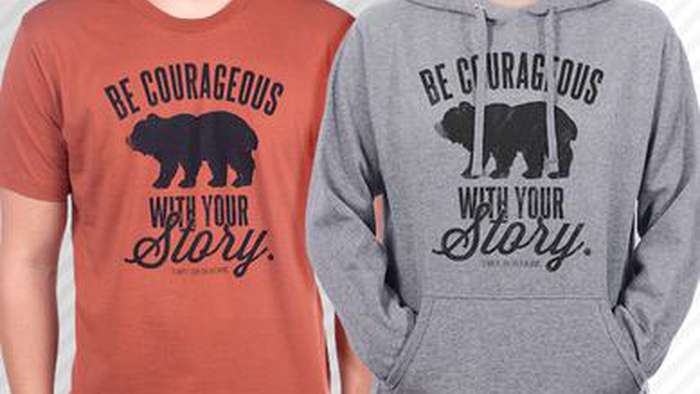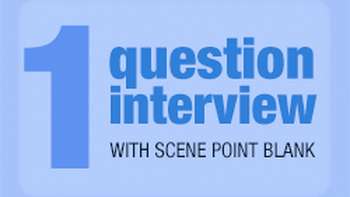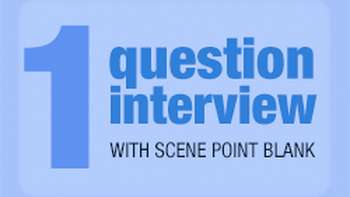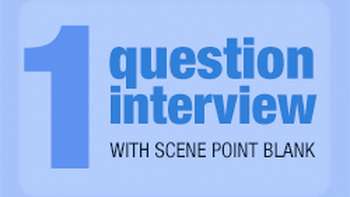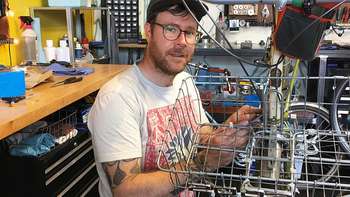Lagwagon were one the first bands that got me into punk rock. Their tracks were my favourite on the Fat Wreck Chords comps, and In the sixth grade I inherited an oversized black hoodie with their symbol on the front, a hand-me-down from my older brother, which I wore nearly every single day for a year and a half. They're one of a handful of bands that defines my early adolescence, serving as a soundtrack for skateboarding, petty vandalism, and my unrequited crushes on older, heavily pierced, girls.
When I was asked if I wanted to interview Joey Cape, Lagwagon's lyricist and lead singer, there was a part of me that jumped at the opportunity, and another part of me that wondered what I'd have to ask him. At that point Lagwagon, though technically still together, had been mostly inactive for a number of years. More recently Cape has released two solid solo albums, stripping down his songs in a similar vain to his contemporaries Chuck Ragan and Dan Adriano, and served as a producer for a number of different bands, but to me Cape mostly was a bug in amber. He was a happy reminder of a simpler time, and while there were easily were dozen or so questions that I could come up with based on my respect and love for his work, there was also a bigger issue that I was afraid to talk about.
Nearly two years ago Tony Sly, the lead singer of No Use For a Name and Joey's longtime friend and collaborator, passed away suddenly at the age of 41. The details surrounding his death have not been released to the public. It's not the first time Cape has suffered such a loss. In 2005 former Lagwagon drummer Derrick Plourde committed suicide by gunshot. The death inspired the band's tribute album Resolve.
The interview I was offered was part of a press junket for the latest Me First and The Gimme Gimmes album, Are We not Men? We Are Diva!. It's a stellar cover album on which Joey plays guitar alongside NOFX's Fat Mike and Spike Slawson of Swingin' Utters. While I was putting together my questions I wondered whether or not it was appropriate to ask a stranger about their dead friends in a email interview, particularly an email interview about a cover band who frequently dresses up in silly costumes. The Gimmes remain one of the most fun acts in rock 'n' roll, and I was worried that mentioning Tony or Derrick might kill the tone of the Q &A. Ultimately, I decided against it. I sent off the questions and Joey responded with intelligent answers about the band's legacy and the nature of using other people's art as your own.
Still, I couldn't get the other questions out of my head, and at risk of sounding trite, I think it speaks to a bigger issue within our society.
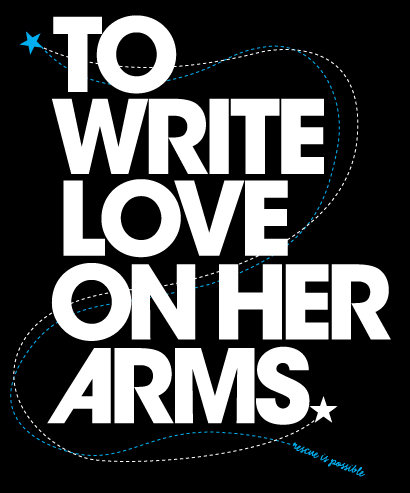
Talking about mental health is uncomfortable. Talking about it with strangers even more so. While these issues have been written about before, I believe that continuing that dialogue in an open and honest fashion is important, which is why I got in touch with my editor asking if I could send some follow up questions. To be honest, the whole thing still feels uncomfortable. I don't know Joey, and getting that personal with another person requires a level of trust that''s difficult to establish over such an imprecise medium. I also have trouble separating my own idea of Joey Cape, the frontman for my frivolous youth, with the realities and hardships he's had to face. Of course, I could have easily held a similar sentiment about Tony Sly, which is kind of the point.
I didn't get to ask any more questions beyond our initial interview. It's a subject which he's talked about extensively in other interviews, and understandably Cape wasn't up for another round. Earlier this year, Lagwagon released a new album, which was mostly fantastic.
But even after the interview with Cape, I couldn't get the idea of writing a piece about mental health out of my head. So many of my idols, both in literature and the the music world, have ended up as suicides. There was a time in my younger years where I found that notion almost romantic -- but now? It's too much. Death isn't poetry. Death isn't cool or subversive. Death is just death, and the idea that a person would be in enough pain, would feel lonely or strange enough, to inflict that upon themselves? It's a scary thing to think about, and something that happens far too often, whether we admit it or not.
"Death isn't poetry. Death isn't cool or subversive. Death is just death."
I was initially contacted by To Write Love on Her Arms during a press junket during their summer run with Riot Fest. The non-profit stemmed from a 2006 essay in which Jamie Tworkowski described his experience helping a friend struggling with addiction, depression, and self harm. Jamie and his team began selling t-shirts to help pay for his friend's treatment, and from there things snowballed. Band's got involved and helped to promote the cause. Teens began getting in touch, sharing similar stories and looking to help. Today Tworkowski and his team run To Write Love on Her Arms full-time, hosting a variety of different events and making appearances to promote mental health awareness.
While their association with bands such as Paramour and Switchfoot combined with the fact that the initial events that spawned the To Write Love on Her Arms essay were turned into a major motion picture initially put me on guard, I decided to go through with the interview. However uncomfortable, we need to be able to talk about these things. We need to talk about them over and over: to young people and to old people and to everything in-between, until we all know that it is okay to ask for help, it is okay to feel this way, and it is okay to try and get better. Those may seem like obvious statements. I wish they were, but they're not.
Below is the short interview I conducted with Jason Blades, the music and events coordinator of To Write Love on Her Arms:
Scene Point Blank: For people who have never heard of To Write Love on Her Arms before, can you describe what it is?
To Write Love on Her Arms: Our mission statement reads that we're a non-profit dedicated to presenting hope and finding help for people who struggle with depression, addiction, self injury, and suicide. We also exist to encourage, inspire, inform, and invest directly into treatment and recovery. That's kind of vague, but what we do is have programs all over the US, and all over the world, that get people connected to resources. Whether that's challenging the stigma that surrounds mental health, investing into treatment and recovery, or just high school programs/college programs create a sense of awareness and eduction on the issues so that when someone is struggling they're more apt to reach out for help and feel less alone with what they're struggling with.
Scene Point Blank: We're doing this interview at a large music festival. How did the group get involved with the music community?
To Write Love on Her Arms: It's a big part of how we began. The first person to ever wear a shirt was Jon Forman of Switchfoot. Our founder, Jamie, was friends with Jon through his work in the surf industry. When Jon found out what Jamie was trying to do--to sell some t shirts to help pay for this one girl's treatment--he asked if he could wear one at a Switchfoot show. That's kind of where it all started. We realized music's ability to connect with people. We wanted to get out to a diverse crowd. That's why we're here at the Riot Festivals. There are so many different bands. We're trying to meet people where they're at. Sometimes with words, sometimes without. Music is instantly recognizable. Its ability to heal and communicate is so important to help spreading the message.
"Music is instantly recognizable. Its ability to heal and communicate is so important to help spreading the message."
Scene Point Blank: How did you end up associated with the bands the brand has been associated with?
To Write Love on Her Arms: As a non-profit we don't sponsor bands directly. Often times it's just mutual relationships that grow: bands like Paramore or Switchfoot are some of the bands we've been associated with early on. The musicians recognize that they have a platform and it's a platform where they can reach people to do something for good. Those bands have recognized what we're doing, and have got in touch to try and help provide hope and help. It's often just as simple as that. They've all just come together organically.
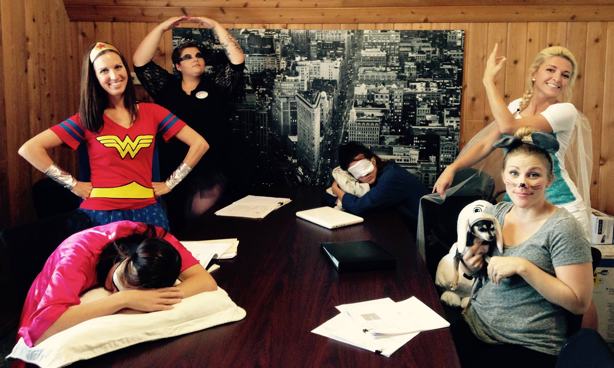
Scene Point Blank: Can you tell me about some of the specifics behind the after school programs that you've set up?
To Write Love on Her Arms: We have a high school and we have a college program, and as an organization all the programs that we have are geared towards bringing the idea of talking about mental health and bringing that sensitivity and awareness into their communities, so that when they have someone in the community who is struggling they're better able to addresses it. We connect to local resources, and we hope that through our programming and their engagement, they can get people connected to those resources. That's basically what the programs are geared around.
The high school program is called The Storytellers. Kids are given literature and material about To Write Love on Her Arms, and about mental health in general, championed by how we formed and how bands got involved, and are encouraged to start dialogues within their school about mental health issues. They are also able to sell To Write Love On Her Arms merch, with the proceeds going back to local mental health facilities within their areas.
The college program is similar, but with people being of a college age, they're often encouraged to start their own events, sometimes sharing their own stories about mental health. The whole idea is to create community, because it's in a community that people can really get the help they need.
Scene Point Blank: What do you think community looks like in a festival setting?
To Write Love on Her Arms: We're at a festival mainly to raise awareness, provide resources, and connect people to resources. We have stuff that we sell, because that's how we fund ourselves, but we're really out here to meet people. We want to encourage people to get help if they need help. We have a resource guide for every city that we're in. It may seem broad, but we always just try and start conversations. The conversations about mental health often don't get started because they seem taboo or people feel…the stigma is why people don't get help or ask for help. In two-thirds of those who are struggling with depression, it goes untreated. They don't know how to get help or they're afraid to ask. And starting a conversation? I know it's simple but that can be big. We want to encourage people and present this information in an accessible and easy to digest way.
--
More Information on To Write Love on Her Arms can be found at their website.
If you feel you need emergency help or someone you know needs emergency help please call your local authorities or 1-800-SUICIDE.
